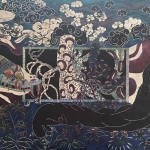
Among the translations of “ikigai” from Japanese are “reason for being” and “purpose in life.” The key is to determine where four essential elements—what you love, what you’re good at, what the world needs, and what you can get paid for—intersect. Locating your ikigai means knowing what nourishes, balances, and excites you. Your daily life finds significance and direction when your job and social contributions complement your interests, skills, and values.
Knowing Existence or Kaizen
The kaizen philosophy just asks for continuous improvement in all areas of life. This concept emphasises the possible significant effects of small changes performed gradually over time. Kaizen helps you better your life both personally and professionally with consistent tiny efforts. When one thinks in this way, initiative is encouraged because modest adjustments made over time can add up to a lot. Applied to your hobbies, profession, relationships, or health, Kaizen encourages a culture of ongoing development.
Shut up, or Shikata ga nai
With its meaning of “it cannot be helped,” “Shikata ga nai” is really about learning to accept what is beyond our control. While one tackles the inevitable challenges in life, this way of thinking makes one tough and comfortable inside. Knowing what you can and cannot change is admitting Shikata ga nai. Applying this tactic, one should focus on doing good deeds rather than battling unanticipated events. Here acceptance is understanding that there are uncontrollable conditions and that it is better to adapt and move on than to quietly retire.
A mistake left in, or wabi-sabi
Wabi-sabi is the appreciation of the beauty present in transience and imperfection. Real and liberated living follows when one promotes appreciation of the flawed and transient aspects of life. We develop abilities in perceiving beauty in the ordinary and worn-out, understanding that imperfections are inevitable, and appreciating simplicity. This perspective encourages us to give up on the pursuit of excellence and to cherish the unique and fleeting moments in our life, therefore promoting a stronger relationship with the here and now and our surroundings.
Requirements of the Gaman
Gaman is a patient and incredibly forgiving man. That is related to emotional regulation and keeping composed under pressure. Regarded highly in Japanese society, gaman can help with mental perseverance. It makes plain that one has to handle hardship with dignity and remain composed under pressure. Because gaman practice builds inner strength and tenacity, it allows us to face challenges in life with grace and resolve.
Keep Reading
Knowledge of Learning or Shu-Ha-Ri
The phases of mastering learning are described by Shu-Ha-Ri. Shu exceeds the rules after first following them (Ri). In whatever field or skill, this paradigm encourages continuous learning and improvement. Shu is perfect performance of classical forms. You start fiddling with and modifying the Ha stage forms. You completely transcend the forms in the Ri stage, reaching a degree of proficiency where the practice begins to mirror your true self.
Formula of Invisibility for Mono unaware
Awareness of the transience of things and the little pain at their passing is known as mono no conscious. It is evident from that how fleeting the beautiful pleasures of life are. Understanding that everything is transient helps us to enjoy the present moment and all of its pleasures much more. Mono no aware promotes permitting time to flow and being acutely conscious of how short life is.
Japanese Philosophy Monthly
Each of these Japanese concepts has a unique perspective on how to live a happier, more fulfilled life. Ikigai, Kaizen, Shikata ga nai, Wabi-sabi, Gaman, Shu-Ha-Ri, and Mono no Aware should be better, harmonised, and effectively included into daily activities. Through providing sharp information and practical tools for personal growth, these ideas promote a closer connection with the outside world, other people, and oneself. Finally, a better and more successful existence will come from our conscious use of these concepts to assist us gracefully and successfully manage obstacles in life.



























